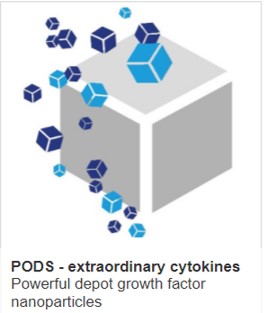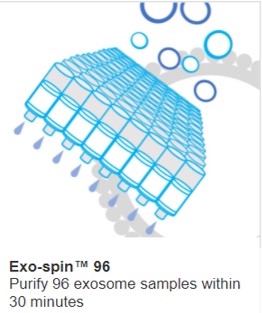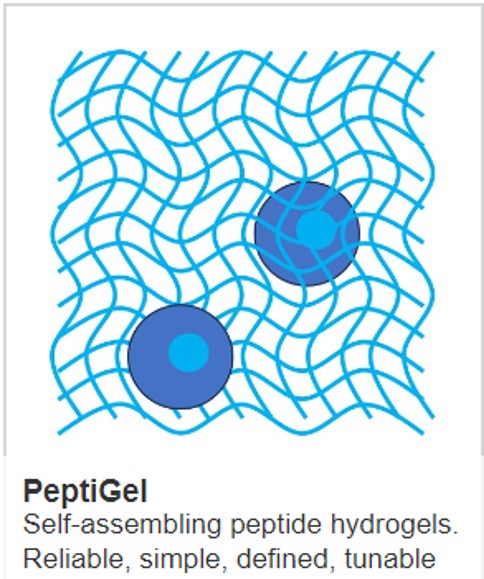Better Stem Cell Therapies? PODS-Enhanced Organoids

A new study led by researchers at the University of Glasgow presents compelling evidence of PODS® ability to elevate organoid-based therapies to a new level.
In regenerative medicine, organoids, miniature, three-dimensional cell cultures that mimic real tissues, are gaining momentum for their potential to revolutionize treatment strategies. One major challenge, however, has persisted: maintaining the regenerative capacity of stem cells like mesenchymal stem cells (MSCs) once removed from their natural niche.
The Challenge with MSCs in Regenerative Therapies
MSCs are multipotent and renowned for their and immunomodulatory properties, making them ideal candidates for treating injuries, inflammation, and degenerative diseases. But culturing MSCs in sub-optimal conditions outside the body leads to loss of critical functions. One way to improve this is by culturing MSCs as spheroids. These organoid-like clusters better preserve stem cell traits by mimicking in vivo conditions. Still, these alone aren't enough. Without consistent, apporpriate signaling from their microenvironment, MSCs begin to lose their utility.
This is where sustained delivery of growth factors using PODS® technology has been shown to have an important beneficial impact.
What Are PODS® and Why Do They Matter?
PODS® are microscopic crystals that encase growth factors like NGF-β (nerve growth factor-beta) within a protective polyhedrin protein lattice. This structure shields the delicate proteins from degradation, allowing for slow, protease enzyme-triggered release directly at the site where they're needed.
By embedding these crystals actually inside MSC spheroids and encapsulating them within biocompatible hydrogels, the Glasgow researchers created a highly localized, sustained spheroid delivery system. This method ensures MSCs continuously receive signals that maintain their multipotent, regenerative state—even under stress or injury conditions.
Superior Benefits for Organoid-Based Therapies
The study demonstrated that NGF-β released via PODS® outperformed traditional soluble growth factor delivery on multiple fronts:
- Enhanced Cell Survival: Spheroids treated with PODS®-NGF-β showed significantly higher resistance to oxidative stress, maintaining cell viability better than those with soluble NGF-β.
- Preserved Stemness Markers: Key markers like CD166 and Nestin, indicative of stemness and marrow-like phenotype, were significantly upregulated with PODS®, proving the MSCs retained their regenerative identity.
- Improved Morphology: Unlike control groups, PODS®-treated spheroids maintained compact, circular structures critical for therapeutic applications.
- Responsive to Injury: When placed on scratch-injured fibroblast layers, the PODS®-enhanced spheroids displayed increased spreading, migration, and activation of injury-response genes like α-SMA and VCAM-1—signs of their readiness to repair tissue.
Why This Matters for Organoid Research
In the context of organoids, PODS® represent a paradigm shift. Most organoid models suffer from inconsistent signaling and require frequent media supplementation with growth factors—an expensive and inefficient process. Embedding PODS® within organoids allows for autonomous, sustained signaling, creating more stable, responsive, and therapeutically relevant models.
Moreover, since PODS® technology can be tailored to different growth factors, this system offers customizable, long-lasting, and localized delivery—ideal for scaling organoid-based disease models, drug testing platforms, and cell therapies.
Toward Smarter Regenerative Solutions
As organoid technology matures, innovations like PODS® will be key to unlocking their full therapeutic potential. This smart delivery system doesn’t just protect and deliver growth factors—it empowers cells to behave more like their natural counterparts, increasing the effectiveness of regenerative treatments.
Whether you're a scientist developing next-gen organoids, a clinician seeking more potent cell therapies, or a biotech innovator looking to scale, PODS® technology is paving the way for smarter, more sustainable regenerative solutions.
IMAGE: PODS in spheroids CREDIT: Cell Guidance Systems



